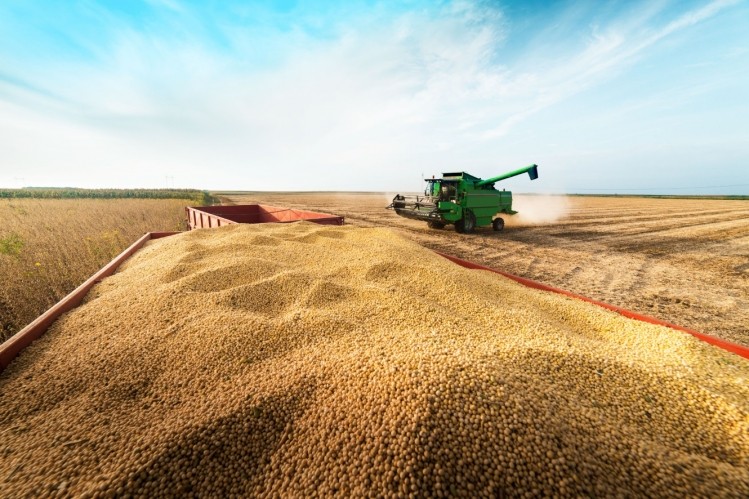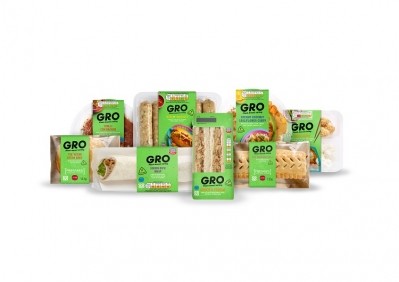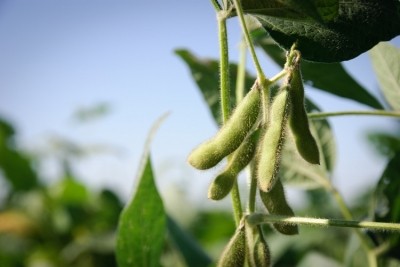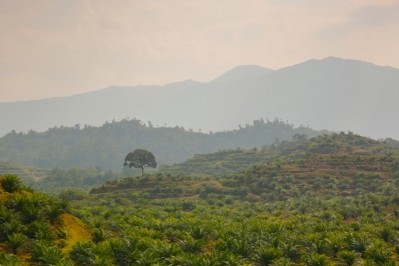The Co-op’s sustainable soy pledge: ‘There are certain things that customers just expect’

Convenience retailer The Co-op is taking fresh steps to tackle the deforestation and biodiversity loss caused by “ever expanding” soy cultivation with a commitment to source 100% sustainable physical soy by 2025.
As part of this effort, the member-owned c-store operator has funded Round Table on Responsible Soy (RTRS) credits to offset the soy used in its own brand products through to 2020. These credits support sustainable soy producers and The Co-op is not asking its suppliers to foot the bill for the credits, sustainability manager Sarah Wakefield explained.
“Credits are the first part of our plan, the first step on our journey. We think it is important to take steps today to start moving the market,” she noted.
The Co-op hopes its investment will spur change across its supply chain, from encouraging increased sustainable production to embedding sustainable soy in the supply chains of the manufacturers it works with.
“We appreciate that it’s a journey and that is why we have a 2025 target around physical sustainable soy. But we want to start supporting those farmers who are doing the right thing. And, at the moment, credits are the most viable way to do that. We do hope to work with the industry to change that over the coming years.
“We will continue working with our suppliers on how to get that shift into sustainable soy for the long term.”
Soy and deforestation: ‘This is a big issue’
Brazil, Argentina and the US together produce around 80% of the world’s soy. Growing global demand has caused a jump in production. Across the whole of South America, production grew by 123% between 1996 and 2004, according to Yale University’s Global Forest Atlas.
This has resulted in high rates of deforestation in the Brazilian Amazon, which reached an average rate of 1,950,000 ha cleared per year from 1996 to 2005.
However, soy production has not garnered the same level of engagement in Europe as hot topics like palm oil. Partly, this can be chalked up to the fact that most of our soy consumption is not ‘visible’. While some soy is used in products like tofu and meat substitutes, much of it is used as soybean meal for animal feed.
“The average European eats over 60 kg of soy a year, and most of the time they don’t even realise they are eating it because it is embedded in the feed of animal products,” Wakefield explained.
The Co-op believes that by targeting soy it can have a big impact on the sustainability of its supply chain.
“It is a very significant commodity in the food supply chain. To put it into context with regard to some of the other commodity issues, through our foot printing we know we have about 80,000 tonnes of soy embedded in our supply chain. We use about 6,000 tonnes of palm oil. Couple that with the fact that it takes more land to grow a tonne of soy than it does palm oil, you start to understand why this is a big issue.”
Aligning itself with third-party certification, such as the RTRS, also broadens the impact of its initiatives: “There are many difficult issues and challenges associated with soy production. One of the great things about a lot of the soy standards is they do cover sustainable production more generally as well as land use change and labour issues.”
Collaboration will be key to driving market transformation, the sustainability expert stressed.
“We have decided this is the best step to take now while we work with the industry on wider change. At The Co-op, it has got to be about partnership and collaboration because it is such a big change that needs to happen in the feed industry.”
Meeting consumer expectations
The Co-Op aims to be “the ethical choice on the high street” and, as such, hopes to help its customers make “ethical choices”, Wakefield said.
This is nothing new for the group and the soy commitment is “part of a journey” The Co-op has been on “for a long time”, Wakefield claimed. However, she said, there has been something of a shift at a consumer level, with people waking up to the impact the food system has on the planet.
“We are seeing with the rise of social media and more information being available to people, there is more of an interest in environmental issues. We do expect that to continue to develop over the next year, with series such as 'Our Planet' and the big BBC focus on environmental issues,” Wakefield predicted.
Retailers have an important role to play in this regard. As businesses that are closest to the consumer, grocers are responsive to - but also more able to communicate and shape – ethical consumerism.
“The retailer is the recognisable household name… We hear what consumers want. We are acting as the voice of the customer within the supply base. I think that is why this push [towards sustainable sourcing] often comes from retailers – and we are the lens that customers see these issues through.
“As a cooperative we also have a direct relationship with our members who own The Co-op. Through things like our AGM they make clear what they want us to work on and I think we will see more topics like this coming through these platforms.
“We think it’s very important to help people understand where food is from and put a true value on food, which is part of our Future of Food plan.”
This focus on sustainable sourcing does not necessarily represent a point of difference or feed through into higher pricing. Quite simply, it is now a prerequisite for many UK consumers. “Sustainable sourcing of key forest products is expected from consumers. There are certain things that customers just expect you to do and this is one of them,” Wakefield told this publication.
The Co-ops efforts will initially focus on its private label ranges – not least because most soy in its chain is embedded in animal feed and the majority of protein the group sells is own label. However, the retailer is also looking at pushing its branded suppliers. “It will be an ongoing process. As the market changes we will be working with our suppliers on how fast and how far can we go.”


























